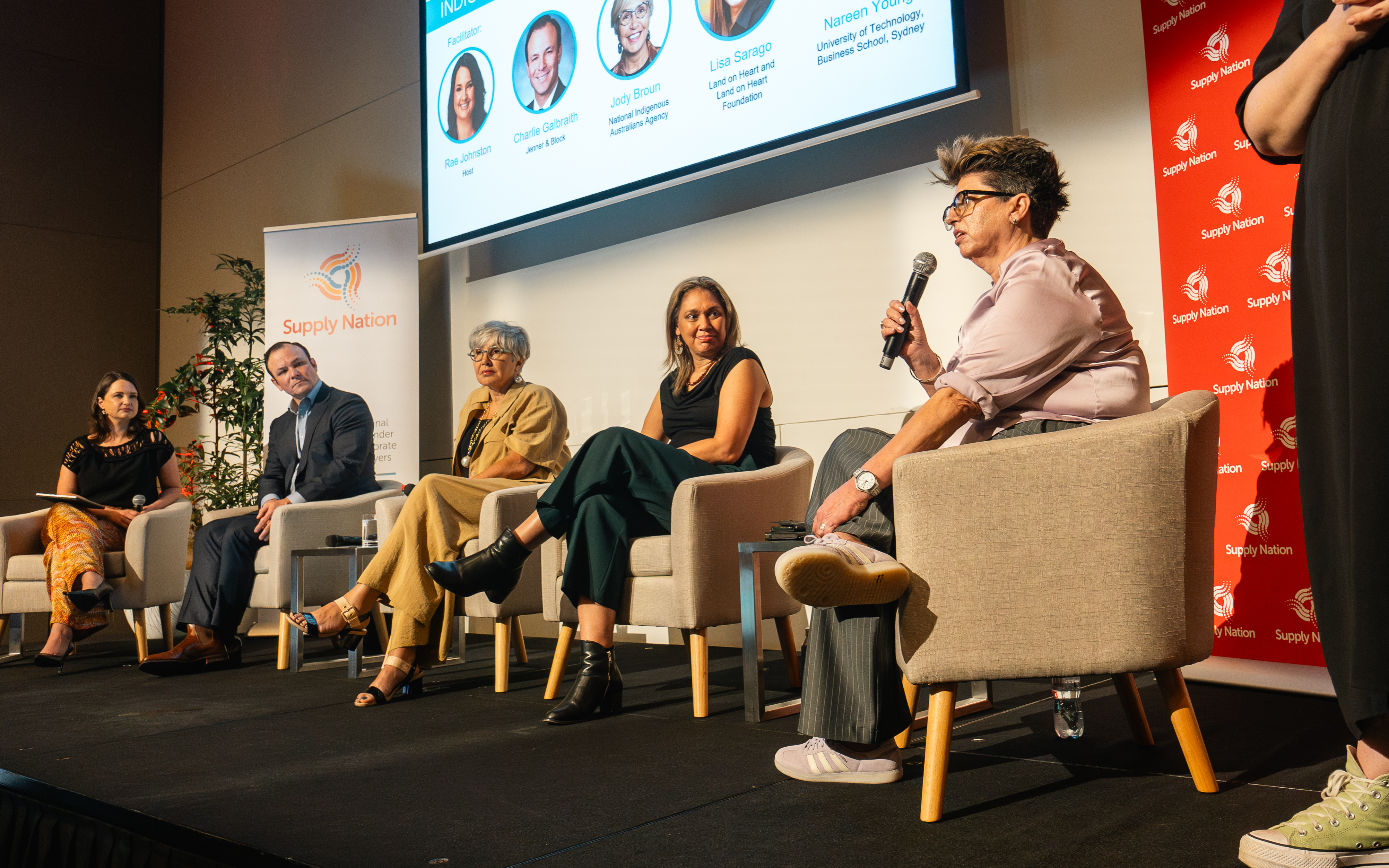The Supply Nation Connect 2024 Knowledge Forum in Meanjin (Brisbane) opened on Wednesday with a keynote by chief executive Kate Russell, who emphasised the importance of legacy in Indigenous business.
The two-day event at the Brisbane Convention and Exhibition Centre brings together leaders to discuss pathways for closing the gap and advancing economic development for Aboriginal and Torres Strait Islander people.
An opening session, titled "Indigenous Business," featured a diverse panel, including Navajo man Charlie Galbraith, Yinjibarndi woman Jody Broun, Yidinji/Western Yalanji woman Lisa Sarago, and Gadigal woman Nareen Young, a leader in workplace diversity.
Charlie Galbraith, a partner at Jenner & Block and Co-Chair of the firm's Native American Law Practice, spoke about the distinct approach of US Tribes to business.
"US Tribes think differently about business than corporations," Mr Galbraith said, explaining that this mindset could be a real strength.
"A lot of tribes where I come from—you have to think seven generations ahead."
His role involves guiding tribes in understanding and leveraging their unique legal and political standing, a practice that directly connects to the session's focus on generational wealth and long-term prosperity.
National Indigenous Australians Agency (NIAA) chief executive, Jody Broun, leads efforts to empower Indigenous communities through genuine partnership.
The NIAA's work aligns with the session's theme by influencing change across government, ensuring that Aboriginal and Torres Strait Islander peoples have a say in decisions that affect their economic and social futures.
Mrs Broun's focus on self-determination and aspirations ties directly into the conversation on how Indigenous business models can create lasting legacies.

Mrs Sarago, leading the Land on Heart Foundation, works at the intersection of cultural awareness and digital innovation. Her foundation aims to bridge gaps between Indigenous and non-Indigenous cultures, which is crucial for creating inclusive business environments that support economic development.
"For us at Land on Heart, our whole purpose is around self-determination and using the tech industry as a method," Mrs Sarago said.
"Building pipelines, making that culturally safe will ensure that our people have that place to go and participate in the tech sector."
She highlighted the significance of the tech industry.
"It being the third largest industry in Australia, and fastest growing, means that that is something our mob can actually get into," she said.
Professor Nareen Young from the University of Technology Sydney, a leading expert in workplace diversity, directs the Indigenous People and Work Research and Practice Hub.
The hub is dedicated to examining and improving the workplace experiences of Indigenous people, focusing on policy, practice, and law reform.
"I think we need to see ourselves as in the economic life of the nation," Mrs Young said, addressing the concept of Social Return on Investment.
"Whether that's in small business and entrepreneurship."
She pointed out the historical exclusion of Indigenous people from the labour and employment market, adding "we need to assert ourselves as that excellent economic unit that we are".
The panel's insights highlighted the importance of viewing Indigenous business not just as a means to immediate economic gain but as a vehicle for sustaining communities and creating a legacy that benefits future generations.
